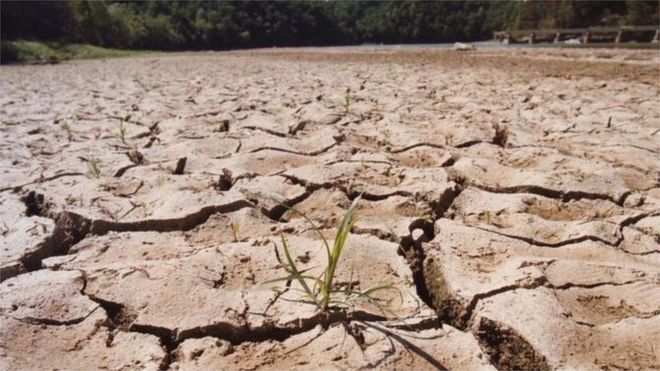Earth warming to climate tipping point, warns study
A warmer world will release vast volumes of carbon into the atmosphere, potentially triggering dangerous climate change, scientists warn.
Writing in journal Nature, they project that an increase of 1C (1.8F) will release an additional 55 billion tonnes of carbon into the atmosphere by 2050.
This could trigger a “positive feedback” and push the planet’s climate system past the point of no-return.
Previous assessments have not taken carbon released by soil into account.
OK, so lets take a quick look at this paper.
Quantifying global soil carbon losses in response to warming
The publicly available abstract lays it all out very clearly …
- There is rather a lot of Carbon in soil
- If you bump the temperature up on a global scale, then rather a lot of that carbon will be released into the atmosphere
- This is essentially true in colder regions. By warming things up, even a small bit, you increase microbial activity, and that generates more carbon.
- That extra carbon would then cause even more warming, and so we have a feedback loop
Its actually a bit more complex. In warmer regions the carbon decreases, but the amount of carbon from colder regions exceeds that loss and so the net overall effect is an increase. That increase is not tiny.
Here is the abstract for the paper itself …
The majority of the Earth’s terrestrial carbon is stored in the soil. If anthropogenic warming stimulates the loss of this carbon to the atmosphere, it could drive further planetary warming1, 2, 3, 4. Despite evidence that warming enhances carbon fluxes to and from the soil5, 6, the net global balance between these responses remains uncertain. Here we present a comprehensive analysis of warming-induced changes in soil carbon stocks by assembling data from 49 field experiments located across North America, Europe and Asia. We find that the effects of warming are contingent on the size of the initial soil carbon stock, with considerable losses occurring in high-latitude areas. By extrapolating this empirical relationship to the global scale, we provide estimates of soil carbon sensitivity to warming that may help to constrain Earth system model projections. Our empirical relationship suggests that global soil carbon stocks in the upper soil horizons will fall by 30 ± 30 petagrams of carbon to 203 ± 161 petagrams of carbon under one degree of warming, depending on the rate at which the effects of warming are realized. Under the conservative assumption that the response of soil carbon to warming occurs within a year, a business-as-usual climate scenario would drive the loss of 55 ± 50 petagrams of carbon from the upper soil horizons by 2050. This value is around 12–17 per cent of the expected anthropogenic emissions over this period7, 8. Despite the considerable uncertainty in our estimates, the direction of the global soil carbon response is consistent across all scenarios. This provides strong empirical support for the idea that rising temperatures will stimulate the net loss of soil carbon to the atmosphere, driving a positive land carbon–climate feedback that could accelerate climate change.
So what did they actually do?
Like most robust peer-reviewed papers, they do explain.
Basically they gathered soil samples from 49 climate change experiments that were being run in about six different types of environment. These ranged from arctic permafrost to dry Mediterranean forests.
What they observed, as might perhaps be anticipated, is that the impact of warming on the soil samples varied considerably. This ranged from positive, through neutral, to negative impacts.
They could then extrapolate from all of this the overall outcome of a global increase of temperature. It pans out as illustrated below. Soil from northern regions yielded the greatest degree of carbon release, and soil from hotter drier equatorial regions went the other way and actually absorbed some carbon. Add it all up and the overall effect is a big increase.
In summary, their global compilation of experimental data allows them to see past the conflicting results from single-site studies and capture larger patterns in the sensitivity of soil to warming.
The results are indeed something to worry about …
our analysis provides empirical support for the long- held concern that rising temperatures stimulate the loss of soil C [Carbon] to the atmosphere, driving a positive land C–climate feedback that could accelerate planetary warming over the twenty-first century Reductions in greenhouse gas emissions are essential if we are to avoid the most damaging effects of this feedback over the rest of the century.
Constraints
This is useful for projecting ahead the consequences of warming in this century, but for longer term projections there are still too many unknowns. Complex processes govern the long-term dynamics that are in play here. The paper does also list out the things that they do not know, hence will require further research.
The fact that feedback loops like this exist is now becoming clear, and so asking and answering such questions is an important step towards the creation of models that can more accurately predict the consequences.
